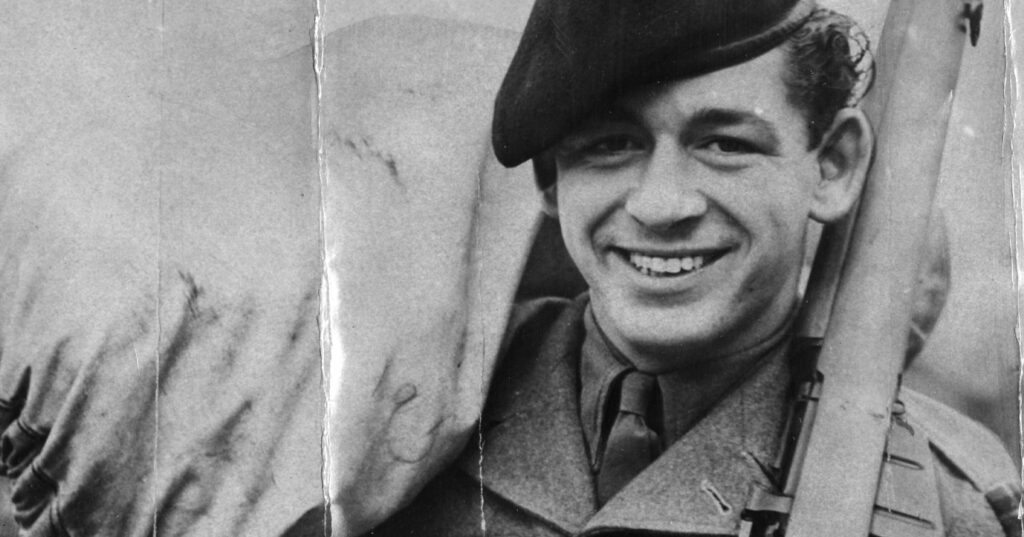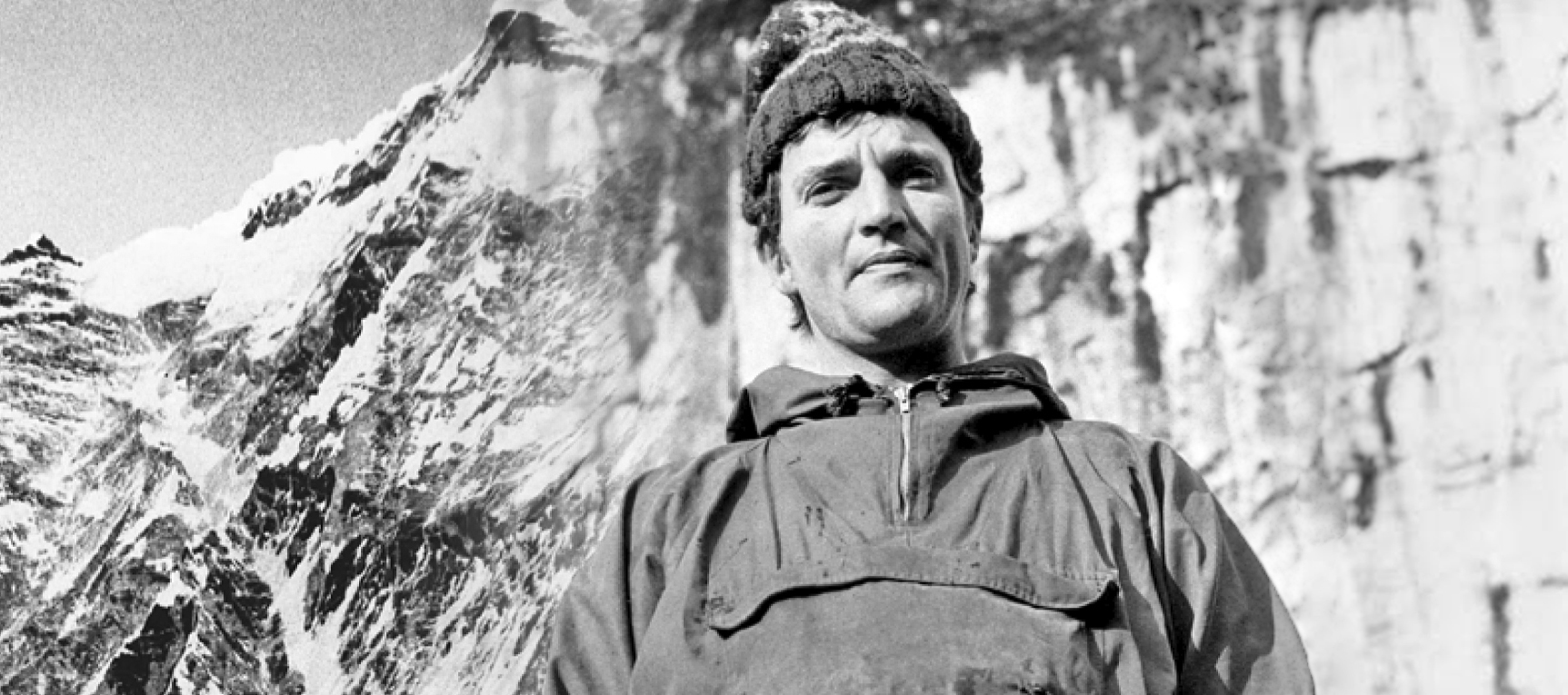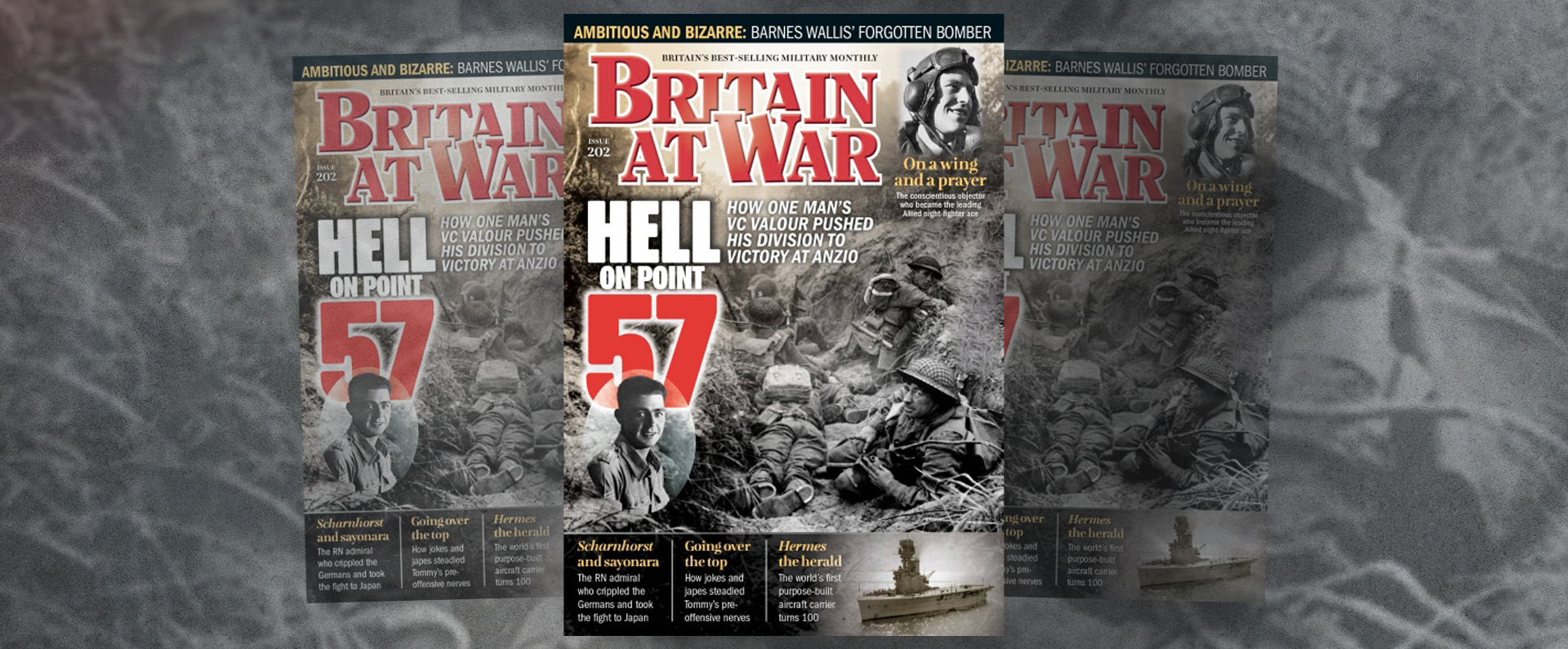
Published in the Daily Express on 13 January 2011.
Fusilier Derek Godfrey Kinne
AS he celebrates his 80th birthday this week, Lord Ashcroft tells the remarkable story of Derek Kinne, who resisted terrible torture at the hands of his captors during the Korean War – and survived to be awarded the George Cross.
It is extraordinary that Derek Kinne lived to see even his 23rd birthday. Given the high mortality rate of Prisoners of War (PoWs) during the Korean War and Kinne’s defiance towards his brutal Chinese jailers, he should logically have perished during his 28 months in captivity.
Yet today Kinne, who arguably went through more suffering that any of the 159 individuals to have been awarded the George Cross , celebrates his 80th birthday with a small family dinner. On this landmark event, it is fitting that Britain pays tribute to one of the bravest men ever to pull on a British military uniform.
Even the story of how Kinne, who was born in Nottingham but raised in Leeds, came to be fighting in the Korean War is worth telling. From an early age, the joiner’s son was close to his older and younger brothers, Raymond and Valentine. In 1947, they bought three rings at a shop in Leeds, which were inscribed Kinne I, II and III. They also made a solemn pact that, if one of them was killed in action, another brother would take his place.
So when Raymond Kinne was killed serving with the Argyll and Sutherland Highlanders in 1950, Derek Kinne, who had been working in a hotel, honoured the deal and put his name forward for the “Korean Volunteers Scheme”. At the time, Kinne also hoped that he would find his beloved elder brother’s grave in Korea.
The Korean War had broken out in June 1950 between the Chinese and Soviet-backed Democratic People’s Republic of Korea and the West and United Nations-backed Republic of Korea. During the conflict, thousands of Western PoWs died after they were beaten, starved, put to forced labour, marched to death and summarily executed.
Fusilier Kinne, who was serving with the 1st Battalion, Royal Northumberland Fusiliers, was captured by the Chinese communist forces on April 25, 1951. From then onwards, he had two priorities: to escape so that he could continue to fight the enemy and, while he was in captivity, to raise the morale of his fellow prisoners through his contempt for his captors and their brutality.
Remarkably, Kinne first escaped within 24 hours but was recaptured just days later as he tried to rejoin the British forces. He was then put in with a large group of prisoners being marched north to prison camps. During a harsh one-month march, Kinne emerged as a man of outstanding leadership who inspired his fellow prisoners.
Kinne’s treatment during his time as a PoW was even worse than it might have been because of his determination to defy his cruel captors. At times, he taunted them so much that they beat him with such ferocity that he was left close to death. By the middle of 1951, three months after his capture, he was well-known to his jailers and he was accused of being non-co-operative. He was brutally interrogated time and time again.
For refusing to inform on his comrades – and also for striking a Chinese officer who assaulted him – he was tied up for periods of up to 24 hours. During this time, he was made to stand on tip-toe with a noose around his neck so that, had he relaxed, he would have been throttled.
In June 1952, Kinne escaped a second time but was recaptured two days later. He was again severely beaten and this time placed in handcuffs, which were often tightened to restrict his circulation and which were kept on him for 81 days.
Kinne was accused of “insincerity”, a hostile attitude to the Chinese, the sabotage of compulsory political study, escape and of being a reactionary. From July 1 to August 20, Kinne was kept in a tiny box cell, where he was made to sit to attention all day and denied any washing facilities. The box was just five feet nine inches long by four feet six inches high and two feet six inches in width.
At intervals, Kinne was beaten, prodded with bayonets, kicked and spat upon by his guards. On August 20, after complaining of being beaten by a Chinese guard, he was forced to stand to attention for nearly seven hours. When he complained, he was beaten by a Chinese guard commander with the butt of a submachine-gun, which went off and killed his assailant. For this accident, he was beaten senseless with belts and bayonets, stripped of his clothes, and thrown into a rat-infested hole for several days.
Next Kinne was tried – on October 16 – by a Chinese military court. His “crimes” were to have attempted to escape and being a reactionary. Initially, he was sentenced to a year in solitary confinement but this was increased to 18 months when he complained at his trial that he had been denied medical treatment for a severe double-hernia. On December 5, 1952, Kinne was transferred to a special penal company. His final period of solitary confinement began in June 1953, when he was sentenced for defying Chinese orders and for provocatively wearing a rosette in celebration of Coronation Day.
After an armistice was signed between the two warring sides in July 1953, Kinne prepared for his release as part of a prisoner-exchange deal. He was eventually freed on August 10, 1953, after two years and four months in captivity. By this time, Kinne’s defiance was legendary and he was known as “the man North Korea could not break”.
Kinne was awarded the George Cross (GC) on April 9, 1954. His citation ended: “Every possible method both physical and mental was employed by his captors to break his spirit, a task which proved utterly beyond their powers. Latterly he must have been fully aware that every time he flaunted his captors and showed openly his detestation of themselves and their methods he was risking his life. He was in fact several times threatened with death or non-repatriation. Nevertheless he was always determined to show that he was prepared neither to be intimidated nor cowed by brutal treatment at the hands of a barbarous enemy.
“His powers of resistance and his determination to oppose and fight the enemy to the maximum were beyond praise. His example was an inspiration to all ranks who came into contact with him.”
The GC was presented to Kinne by the Queen at Buckingham Palace on July 6, 1954. Kinne wrote his autobiography, The Wooden Boxes, which was published in 1955. In his book, he described a prolonged period of abuse, including him being bound, handcuffed and suspended from a ceiling by a rope. His worst beating came after his guard had accidentally been shot dead. Kinne wrote: “I was beaten until I longed for death.”
After finally returning home to Britain at the end of the war, Kinne moved to North America in 1957 and married his wife, Anne, also British, in Ottawa, Canada, in 1959. The couple arrived in Arizona, USA, in 1961, bought a house and set up a framing and laminating business in Tucson. Kinne, who has a grown-up son and a daughter, along with four grandchildren, retired in 2005, aged 74.
Today Kinne still has vivid memories of his ordeal as a PoW. During research for my book George Cross Heroes, he described harrowingly how, on September 4, 1952, after yet another beating, he woke up and decided to take his own life on what he knew was his sister’s wedding anniversary. “They had really given me their best shots. When I awoke, I was gagging: I was chocking on my own blood. I could not scream. I was in one hell of a mess. It hurts me to say it but I could endure no more. I decided to finish it all. There was a bloody big nail in the post….I bent my head down and rammed it into the nail.” His injuries were so bad that a doctor who examined him thought he was dying. But he survived and, after that, his treatment improved.
Kinne went back to Korea last year with two of his grandchildren: a visit which inevitably brought back painful and disturbing memories. Today, as he enters his ninth decade, he remains of one of Britain’s unsung heroes and a man who is, without doubt, deserving to be described as “the bravest of the brave”.
Read the full article in the Daily Express
For more information, visit:
LordAshcroftOnBravery.com


